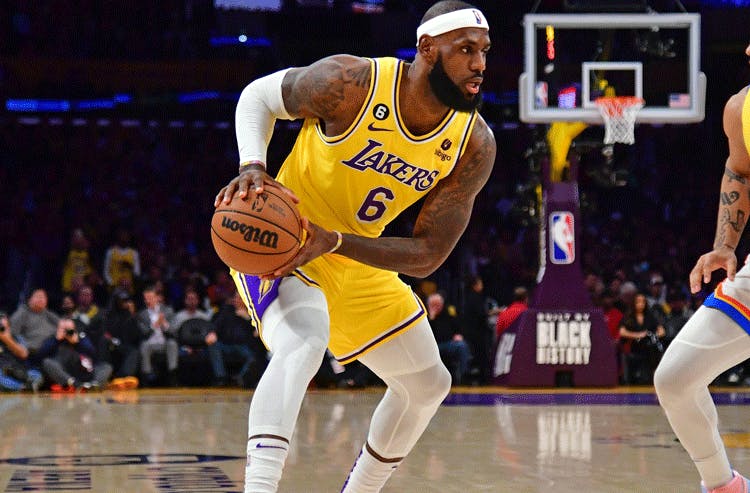There may still be hope for legal sports betting in the Golden State, after several state tribal leaders discussed the issue at a tribal gaming seminar held at last week's ICE gaming exhibition in London.
However, it might not come during the 2024 election cycle.
Despite the public massacre of Proposition 27 at the ballot box in November — the bill to legalize mobile sports wagering in California — tribal spokesmen believe a path still exists to pass similar legislation, if the major U.S. betting sites are willing to work more closely with native tribes.
James Siva, chairman of the California Nations Indian Gaming Association (CNIGA), told conference attendees that operators like FanDuel, DraftKings, and BetMGM need to rethink their approach if there is any hope of convincing Californians to change their minds on the thorny issue of legal sports betting.
He said that the out-of-state sportsbooks were mistaken in their attempt to "strong arm" the tribes by proposing a bill that would have marginalized the various tribes currently in control of the gaming industry in California sports betting.
"Either they massively underestimated the size and reach of those tribes, both politically and financially, or they maybe had bad campaign consultants," said Siva. "I think there’s still a path for tribes and the commercial operators to work together, but it’s going to be a path and relationship that’s decided by the tribes. This isn’t the first time we’ve had commercial entities want a seat at the table as equal to tribes.
In a similar vein, Pechanga Band of Indians Chairman Mark Macarro stated that it was "inevitable" that younger Californians would want, at a minimum, to legalize iGaming even though he was skeptical of whether voters as a whole are ready to give the green light to online sports betting.
"I think there’s a demographic proclivity to want to play online," said Maccaro. "It doesn’t exist right now with the Baby Boomers and Gen X, but Millennials are different players and we’re not sure that slot machines will be what they want to play."
However, from the tribes' point-of-view, it seems like this will still be many years in the making.
"I don't think in '24 anyone really has the appetite to repeat what happened in '22," said Macarro.
Ball in sportsbooks court
Macarro and Siva were both open to the possibility of a future partnership with the major sportsbooks, but that it was up to the operators to make the first overture.
The tribal leaders both cited the need for the out-of-state operators to attempt to heal the lingering animosities from the bitter legislative wars that saw over $460 million spent on dueling attack ads that mainly centered around the sportsbook-backed Proposition 27.
Siva places the blame for the failure to pass either Prop 27 or the tribes' rival Prop 26 on the sportsbooks' decision not to negotiate a broad alliance with California's native tribes that have long enjoyed control of state gaming.
"There are 270 tribes across the nation involved in gaming in some way [and] 70 of those tribes are in California," said Siva, whose CNIGA group represents 45 of them. "Tribal gaming now represents 44% of the total gaming market in the U.S. Twenty-four percent of that 44% is solely California tribes. So you break that down and that means that California tribes represent nearly a tenth of the entire gaming market of the U.S. Commercial, tribal, everything," added Siva.
He cited these figures to argue that the seven major sportsbooks must rethink their approach and seek an alliance with native tribes rather than trying to run roughshod over them.
The massacre of Prop 27
Last year, the major sportsbooks led by FanDuel, DraftKings, and BetMGM spent over $200 million on promoting Proposition 27, only to see California voters reject the bill by an overwhelming margin of 83% against.
This was the sixth-most lopsided defeat of any state ballot proposition in over a century of legislative initiatives submitted to voters and underscored.
The defeat not only reflected general public distrust of legalized online sports betting, but also the intense antipathy towards the non-stop ad campaigns that inundated Californians with a barrage of ads for and against Proposition 27.
Clearly, state voters were not impressed by the sportsbooks' deceptive wording of their ballot initiative, which saw them name their online sports betting bill the "California Solutions to Homelessness and Mental Health Support Act."
The putative reasoning behind this choice of labeling was due to Prop 27's provision that would have funneled 10% of its revenue to state homeless and mental health initiatives.
Another reason for the defeat of Prop 27 was the presence on the ballot of the tribes' rival Prop 26, which added confusion on top of how the public simply tuned out after being bombarded by nearly a half billion ads.
Finding fortune elsewhere
In the meantime, the major online sportsbooks have set their sights on landing sports betting in Texas and Missouri.
In January, Texas lawmakers initiated a renewed effort — backed by millions of dollars in campaign contributions and lobbyist hiring provided by Sands Corp — to legalize sports betting by means of allowing for the establishment of major casino resort destination facilities across the state.
Meanwhile, it was only last week that sports betting in Missouri gained hope, as two identical sports betting bills introduced now have considerable public and legislative momentum behind them.
It is expected that the current session of the state legislature will be sending a bill for the Senate to approve within the next few months.




















